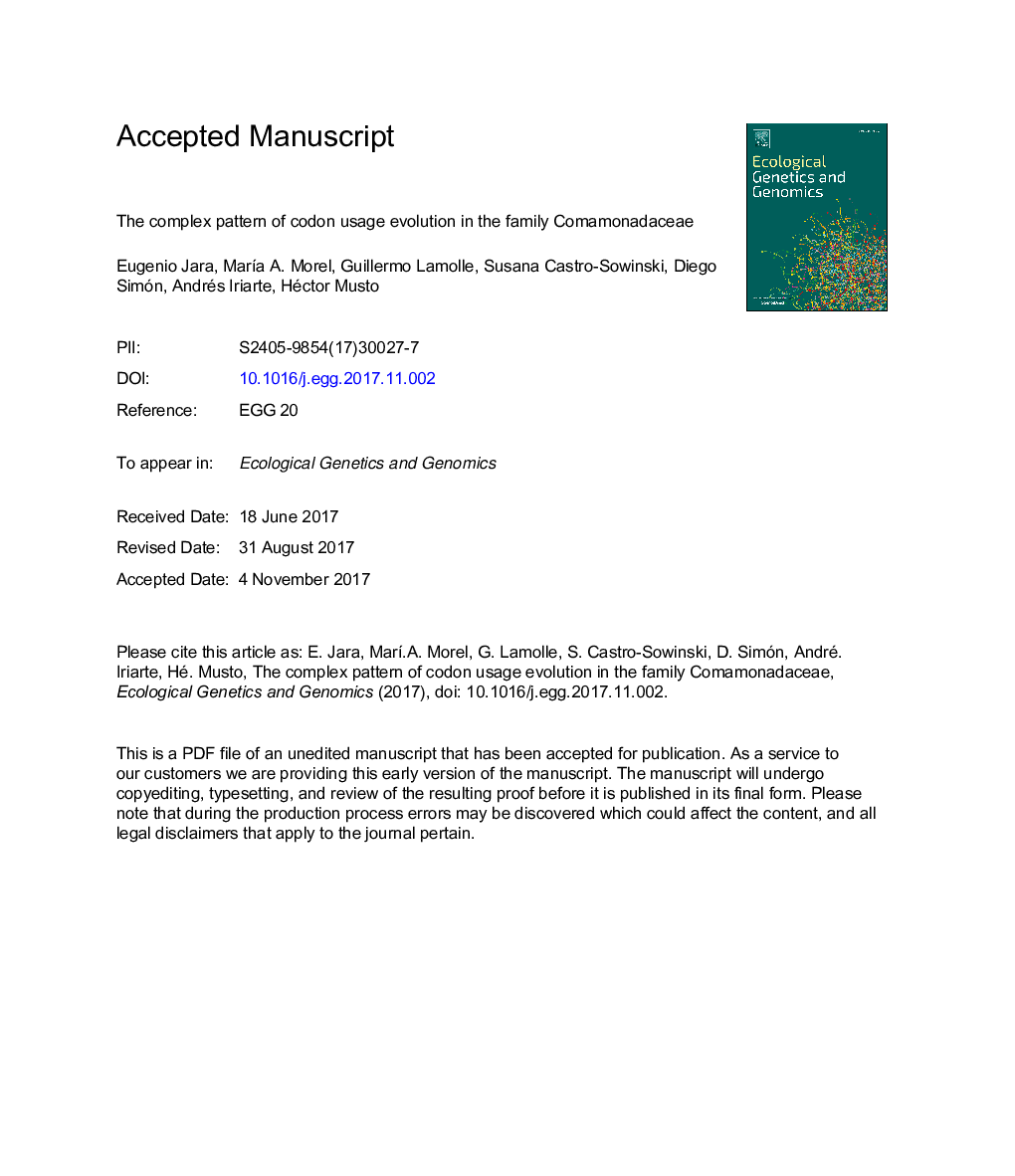| Article ID | Journal | Published Year | Pages | File Type |
|---|---|---|---|---|
| 8644130 | Ecological Genetics and Genomics | 2018 | 26 Pages |
Abstract
The family Comamonadaceae belongs to the Beta subdivision of the phylum Proteobacteria. Members of this family display differential biological properties, mainly related to physiological and/or ecological traits. There are a few studies (if any) about features related with the molecular evolution of this group. In this work we report the analysis of the codon usage patterns using the data obtained from completely and draft sequenced bacterial genomes that belong to this family. The effect of natural selection in translation acting at the levels of speed and accuracy are described and discussed in a phylogenetic framework. Preferred (optimal) codons were identified. We found that there is an important level of variation in the strength of selection among the analyzed microorganisms, which is probably associated with lineage-specific ecological and/or physiological trends. Although the codon usage bias in highly expressed genes is not conserved across the evolutionary time of the family, it is conserved among species within a genus, suggesting a major role of negative selection at this level.
Related Topics
Life Sciences
Biochemistry, Genetics and Molecular Biology
Genetics
Authors
Eugenio Jara, MarÃa A. Morel, Guillermo Lamolle, Susana Castro-Sowinski, Diego Simón, Andrés Iriarte, Héctor Musto,
